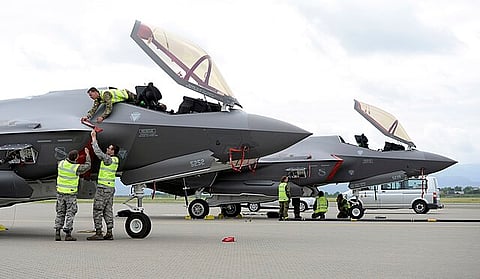

Turkish President Recep Tayyip Erdoğan confirmed renewed efforts to rejoin the U.S.-led F-35 fighter jet program after discussions with President Donald Trump at the NATO summit. Technical teams from both nations have initiated talks, signaling a potential breakthrough in the longstanding dispute stemming from Turkey’s 2019 removal from the program. Erdoğan emphasized that Turkey "has not given up on the F-35s" and seeks either reinstatement or reimbursement of its $1.4 billion investment.
The exclusion followed Turkey’s acquisition of Russian S-400 missile defense systems, which the U.S. argued posed cybersecurity risks to the F-35’s stealth technology. In 2020, Washington imposed sanctions under CAATSA (Countering America’s Adversaries Through Sanctions Act), freezing Turkey’s participation despite its role as a manufacturing partner producing critical components like fuselage sections. Notably, Erdoğan declared the S-400 issue "closed" and avoided discussing it with Trump, reflecting Ankara’s stance that the purchase was a sovereign decision.
Rejoining the program would address Turkey’s urgent military needs. Its air force relies on aging F-16s, while regional rivals like Greece advance with F-35 and Rafale jet acquisitions. The F-35’s stealth capabilities and interoperability with NATO systems are vital for countering threats in Syria and the Eastern Mediterranean. Domestically, reinstatement would revive Turkey’s aerospace industry, which lost $9 billion in contracts and thousands of jobs after its ouster. Six F-35s built for Turkey remain in U.S. storage, awaiting potential delivery.
Despite Trump’s "well-intentioned" stance, significant obstacles persist. Congressional opposition, fueled by allies like Israel and Greece, demands guarantees that sales won’t compromise regional security balances. Moreover, U.S. officials insist the S-400 must be removed from Turkish soil—a condition Ankara rejects. Turkey has slowed its parallel F-16 upgrade talks to prioritize the F-35, suggesting funds could be redirected between Lockheed Martin programs.